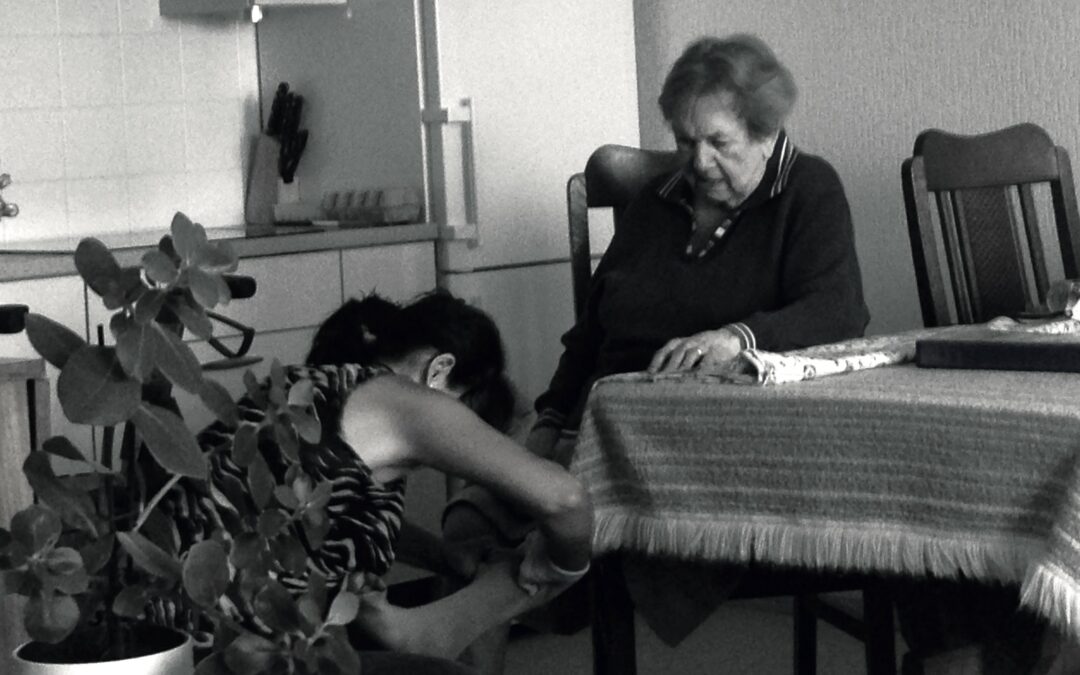In my last blog, I explored Buurtzorg’s purpose, stressing that its service helps people draw on and contribute to their own and their community’s assets, complementing them as necessary with professional inputs.
Among the many striking features of how Buurtzorg achieves its purpose is that individual professionals, their teams and the whole organisation learn constantly in the course of the work itself and their relationships.
They do that as intelligent, properly trained and well supported adults, working closely with the people they serve, and reflecting, thinking and making decisions themselves, individually and collectively.
For this they need no manager. On the contrary, as the doing and the learning are intertwined and inseparable in the conscious everyday practice, individual and collective self-management is crucial to the creative and generative outcomes.
Not long ago I shadowed a Buurtzorg nurse, watching as she helped a succession of clients with stomas and drips, showers and surgical stockings, meds and meals. At one point she made an unscheduled outing from a client’s flat to the local pharmacy, to check on a meds delivery that had caused some confusion. Returning with a reassuring explanation, she called ahead to warn other clients of her delay and rearranged her list so that the one person she knew was likely to be distressed by this small disruption was still seen at the arranged time.
Another nurse in the same team had been up all night with a dying client, and so could not do her scheduled visits that day at all. So she picked up the phone, explained the situation to her colleague responsible at that time for scheduling (a rotating task in the team), and half an hour later it was all sorted.
In short, the individual nurses and their team did what was needed when it was needed, drawing on their professional qualifications, knowledge, experience and common sense, with compassion and thoughtfulness, and little or no fuss.
How do you design a service like that? The short answer is that you can’t, and anyway why would you want to, when we have evolved the human capability to reason, plan, act, cooperate and learn as we go?
The point is that the work is inherently complex, with manifold and ever-changing needs, circumstances, wishes and health conditions, and the rich variety of human personality. Trained and experienced professionals don’t need to be told how to do it, and if and when they are in doubt they can consult and advise each other.
So what do they need to do their jobs well, and to enjoy it?
They need to know what they’re doing, for a start, which requires the right training and qualifications, and they need the right resources in the right places at the right times so that they have the means to do it.
To work and learn together successfully – particularly if emerging from command-and-control hierarchies — they can benefit from learning how to self-manage, and occasionally when they are struggling it helps if a coach trained in supporting self-management can help them find a solution.
And they need clarity about what is expected of them, and what they can expect of others, in the form of a framework of ground rules, and back office supports that respond to their needs in responsive, agile and timely ways.
And there’s the rub.
We have worked with hundreds of nurses, therapists, wellbeing and care workers and more since we started with Guy’s and St Thomas’s NHS Foundation Trust back in 2015. With very few exceptions, these women and men have shown they are no less capable than their Dutch counterparts of working with freedom and responsibility within agreed ground rules. But also with few exceptions, their organisations have been unwilling or unable so far to make the radical changes needed to enable and support them to do it sustainably at scale, and their local and national systems have compounded the barriers and challenges involved.
Time to give up? You don’t need me to answer that, not least because change is not so much coming as happening. Our long-term relationships with some of our closest partners, such as the Thistle Foundation, are creating organisational solutions we know will inspire and inform others, and if there is one good thing to be said about the crisis of Britain’s health and care system it’s that many of the millions of people keeping it from total collapse are also planting and nurturing the seeds of change.
They aren’t helped by yet more centrally imposed diktats. Nor, with all due respect, do they need to be told how to the do their jobs by well-meaning service design, organisational development or public management specialists.
What they do require from politicians and institutional and organisational leaders is a relentless focus on simplifying systems, removing obstacles and responding to what they say they need to create their own solutions, with the people they serve and each other.
It may be paradoxical, and consultants with other agendas might complicate things, but the answer to complexity is to keep it simple.
In the next blog in this series I will share what we have learnt about how to do that, and meanwhile you can get a flavour next week at the free online Transforming Integrated Care in the Community (TICC) final conference.

